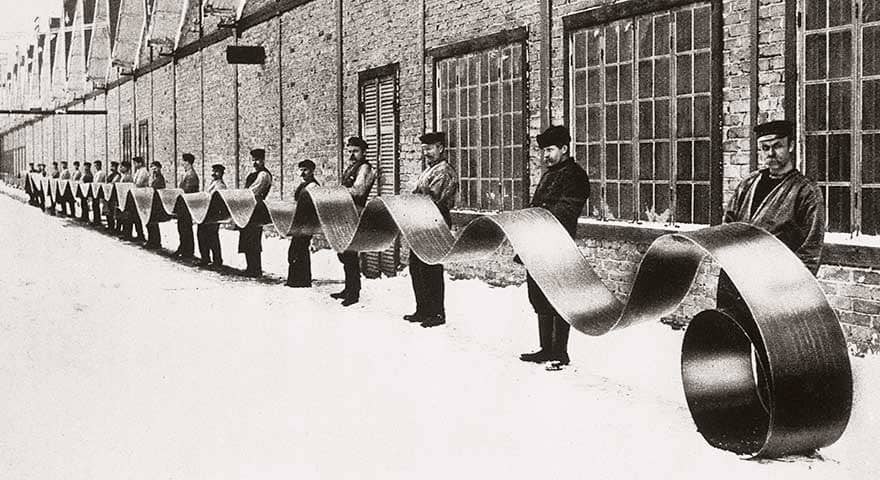The corrosion resistance of iron-chromium alloys was first recognized in 1821 by French metallurgist Pierre Berthier who noted their resistance against attack by some acids and suggested their use in cutlery. Metallurgists of the 19th century were unable to produce the combination of low carbon and high chromium found in most modern stainless steels, and the high-chromium alloys they could produce were too brittle to be practical.
In 1872, the Englishmen Clark and Woods patented an alloy that would today be considered a stainless steel. In late 1890s Hans Goldschmidt of Germany developed an aluminothermic (thermite) process for producing carbon-free chromium. Between 1904 and 1911 several researchers, particularly Leon Guillet of France, prepared alloys that would today be considered stainless steel.
Friedrich Krupp Germaniawerft built the 366-ton sailing yacht Germania featuring a chrome-nickel steel hull in Germany in 1908. In 1911, Philip Monnartz reported on the relationship between chromium content and corrosion resistance. On 17 October 1912, Krupp engineers Benno Strauss and Eduard Maurer patented austenitic stainless steel as Nirosta.
In 1912, Harry Brearley of the Brown-Firth research laboratory in Sheffield, England, while seeking a corrosion-resistant alloy for gun barrels, discovered and subsequently industrialized a martensitic stainless steel alloy. The discovery was announced two years later in a January 1915 newspaper article in The New York Times. The metal was later marketed under the “Staybrite” brand by Firth Vickers in England and was used for the new entrance canopy for the Savoy Hotel in London in 1929. Brearley applied for a US patent during 1915 only to find that Haynes had already registered a patent. Brearley and Haynes pooled their funding and with a group of investors formed the American Stainless Steel Corporation, with headquarters in Pittsburgh, Pennsylvania.
In the beginning stainless steel was sold in the US under different brand names like “Allegheny metal” and “Nirosta steel”. Even within the metallurgy industry the eventual name remained unsettled; in 1921 one trade journal was calling it “unstainable steel In 1929, before the Great Depression hit, over 25,000 tons of stainless steel were manufactured and sold in the US.

